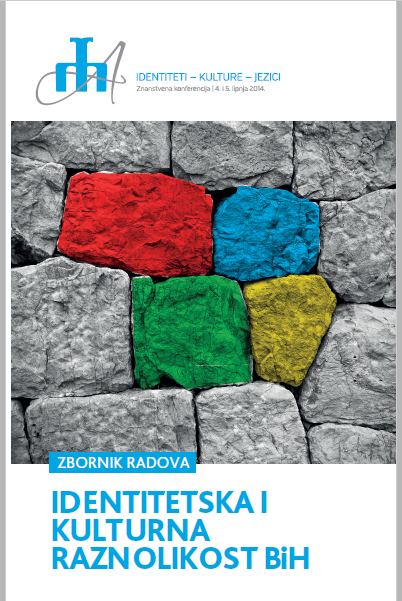ETNOPOLITIKA U DOBA NJEZINOG „GRAĐANSKOG PREVLADAVANJA“
ETHNOPOLITICS IN THE AGE OF „CIVIL SUPREMACY“
(WHY SOLVING CROATIAN ISSUE JEOPARDIZES THE EXISTENCE OF BOSNIA AND HERZEGOVINA?)
Author(s): Ugo VlaisavljevićSubject(s): Politics / Political Sciences, Anthropology, Social Sciences, Epistemology, Political Philosophy, Social Philosophy, Civil Society, Governance, Public Administration, Politics and society, Culture and social structure , Nationalism Studies, Inter-Ethnic Relations, Ethnic Minorities Studies
Published by: Filozofski fakultet Sveučilišta u Mostaru
Keywords: Croatian issue; ethnopolitics; nationalist aspirations; national state; Dayton Agreement; majority; territory; territorialization; third entity
Summary/Abstract: If there is indeed a national issue in post-Dayton Bosnia and Herzegovina, then it is the Croatian issue. Already with the Dayton Agreement that issue has been changed to a state issue with Bosniaks and Serbs: their main national political interest is a final national statehood. For Bosniaks it is Bosnia and Herzegovina, whereas for Serbs it is the Republic of Srpska, as their nation-state. Since the dominant Bosniak national politics is focused on strengthening the state as a whole, the national in that politics is intertwined with the civil. That is why it seems that their national issue does not exist anymore and that there is only the issue of the statehood and civil political participation. In the dominant Serbian politics the national refers only to the statehood of exclusively Serbian entity, so that the national issue is indeed the state issue, but also national. If we see it as a national issue, Croatian issue is then an issue of constitutionality and sovereignty of the nation, of their collective rights. It is raised by the fact that Croats are not constitutive in the Federation, let alone in the Republic of Srpska. That is why Croatian national politics focuses on statutory changes, but that is how it is directly confronted with the Bosniak national politics, because the latter wants to escape the chaos of collective rights in this way. We can assume that Croats, being a minority, do not have their national issue solved. Serbs and Bosniaks do not put up their national issue qua national, in the areas where they are majority – in the two entities. In that case is Croatian entity the only solution? Or is it a delusion of the proponents of the collective rights politics?
Journal: Identiteti - Kulture - Jezici
- Issue Year: 1/2015
- Issue No: 1
- Page Range: 137-156
- Page Count: 20
- Language: Croatian

